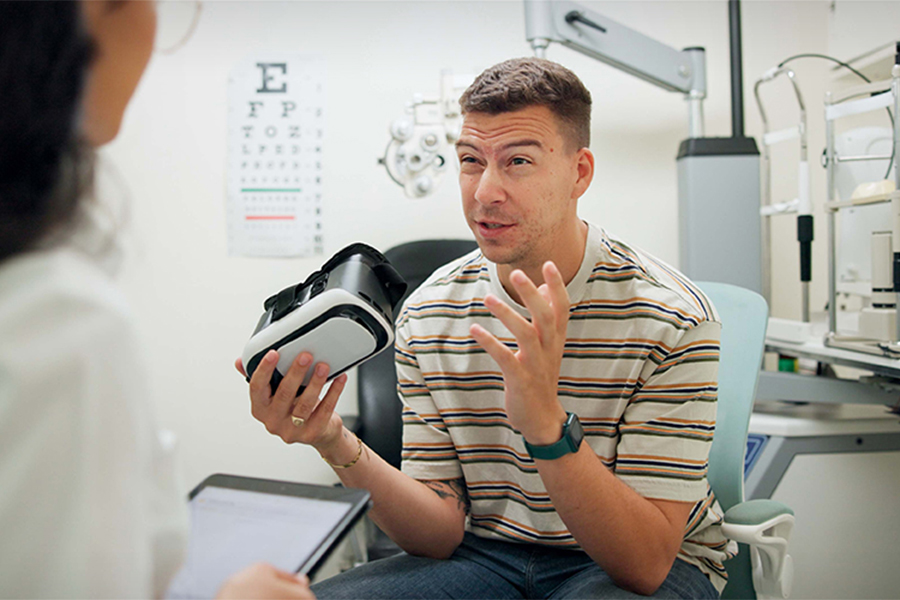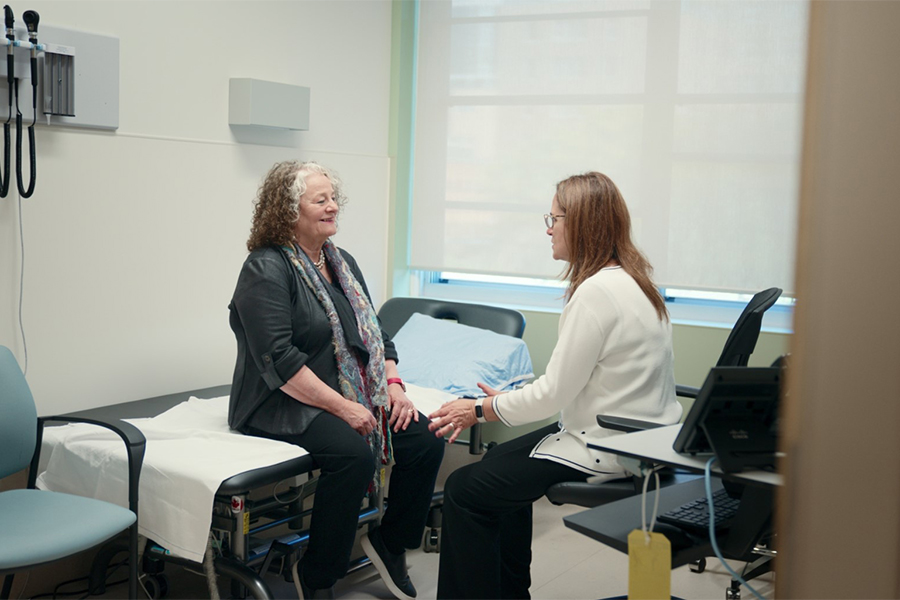
Research from UHN’s KITE Research Institute investigates integrating virtual reality (VR) into conflict management strategies to help reduce aggression in mental health inpatient units.
Conflict in mental health units can lead to aggressive behaviour, posing safety concerns and worsening health outcomes for patients.
The Safewards model, an evidence-based framework, was developed to address issues of conflict and aggression using strategies such as relaxation techniques, exposure to scented towels and relaxing music.
VR has been previously used as a relaxation tool across various clinical settings, offering a novel strategy for addressing aggressive behaviour. When combined with sensory elements such as scent, VR can help enhance relaxation and positive emotional states.
A team led by Dr. Lora Appel, an affiliate scientist at KITE and the study’s senior author, explored how VR can be incorporated into the Safewards model to help manage aggressive behaviours in mental health inpatient units.
They tested VR experiences with nurses from a mental health unit at the Michael Garron Hospital in Toronto.

The study‘s findings revealed that the VR intervention, especially when enhanced with scent, effectively complemented the Safewards model strategies by offering benefits such as relaxation, enjoyment and engagement with the virtual scene. The nurse participants also provided valuable feedback on the feasibility and user experience of integrating VR into clinics.
“The participants emphasized the importance of maintaining a user-centric design that can adapt to different symptoms and severities of impairments,” says Dr. Appel. “Customizability in content and delivery is essential to ensuring that these novel interventions meet the diverse needs of mental health patients.”
By integrating VR into the Safewards model, researchers aim to enhance the benefits and extend the reach of existing strategies, potentially revolutionizing how mental health units manage aggression to support both patients and staff.
By UHN Research Communications
This work was supported by generous donors to UHN Foundation.
Your support is fundamental to us as we push the status quo of health care. Support research at Toronto Rehab by joining Rally for Rehab, presented by BMO, a fundraising event, centered around an accessible walk on September 8!


